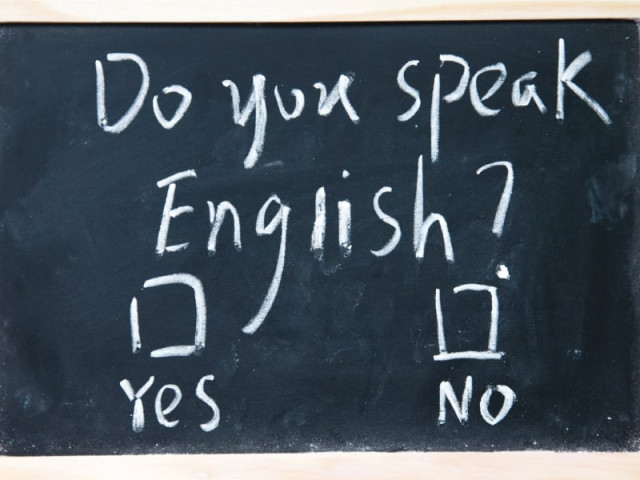The importance of education: Economics of the English language in Pakistan
Country has failed to invest sufficiently in teaching the language.

Among those in Pakistan who claim to be proficient in English, only one in 10 is actually good in written and spoken English, remaining 90% cannot speak more than a sentence or two of correct English. CREATIVE COMMONS
It might come as a complete surprise to many that Pakistan is one of the least accomplished countries amongst those who proclaim to be ‘English-speaking’ countries.
Among those in Pakistan who claim to be proficient in English, only one in 10 is actually good in written and spoken English, the remaining 90% cannot speak more than a sentence or two of correct English. When it comes to writing English, they are slightly better but writing more than one page would be considered a challenge.
The lack of English language proficiency is costing the country dearly. Most of our politicians who claim to be proficient in English (but actually are not) fail to present the country effectively on the international stage. Similarly, our bureaucrats arrogantly claim to be proficient in English, but in fact lack, in most cases, the vocabulary and expression one would consider adequate and appropriate for diplomatic discussions.
As a result, they fail to negotiate favourable terms for us when representing the country vis-à-vis other countries.
When it comes to sports, our stars fail to utter more than a couple of sentences in correct English. Consequently, while they may bring medals and pride to the country through their achievements, they miserably fail to develop an erudite image of the country.
Quite the contrary. After winning a tournament or championship, we still end up leaving the impression to the wider world of being a crude and unsophisticated nation.

Why does the country remain poor in English despite its people taking pride in the English language, culture and heritage? There is a simple explanation. The country has failed to invest in teaching the English language sufficiently.
English tutelage starts at schools. While public schools have almost no qualified English language teachers, a vast majority of private schools have an inadequate and largely unqualified teaching staff for English. Admittedly in large cities, English language proficiency is better, but one must emphasise that it is only marginally better.
Edbiz Consulting, an international advisory firm with offices in London and Islamabad, estimates that there are approximately 50,000 families in Pakistan that are sufficiently consummate in English: only a fraction of the total number of households (estimated to be about 30 million) in the country. Interestingly, less than 1% of families considered to be linguistically proficient are involved in teaching English.
Yet there is an overwhelming desire to learn English as it provides a significant commercial opportunity in the field of teaching English. The global market of English language training is worth billions of dollars, although there are no reliable estimates for the size of the market.
In Pakistan, the government spearheaded the National Institute of Modern Languages in 1970, which was upgraded to a university and renamed as the National University of Modern Languages in 2000. While this was a worthwhile initiative, the government has not been able to develop similar projects since.
Given the enervated state of public sector institutions, it will never be possible to provide high-quality instruction of the English language on a national level. This allows the private sector to develop a viable business model to grab this huge opportunity. There are already a number of non-governmental organisations (NGOs) that are undertaking commendable work, most notably the recently concluded English Access Microscholarship Programme, jointly developed by the US Embassy and the Society for International Education.
This kind of work has existed in Pakistan through different organisations and is expected to continue as part of the development agenda of various governments and NGOs, but there is a lacuna that the private sector has a real opportunity in filling.
English language instruction must be offered as part of a commercial enterprise focusing on development of soft skills (eg effective communication, people management, team work, writing personal curriculum vitae, etc). Although one may find all kinds of advertisements of English language schools and academies in big cities like Karachi and Lahore, these are predominately small places set up by an individual or a group of friends (in some cases as a transitory job). In Islamabad, the House of Knowledge has been the only private English language institution with some limited value and repute since 1980.
No private sector institution has taken a systematic and commercial approach to teaching English in the country, thereby missing a multi-billion opportunity. This needs to change sooner rather than later.
THE WRITER IS AN ECONOMIST AND A PHD FROM CAMBRIDGE UNIVERSITY
Published in The Express Tribune, February 11th, 2013.
Like Business on Facebook to stay informed and join in the conversation.



















COMMENTS
Comments are moderated and generally will be posted if they are on-topic and not abusive.
For more information, please see our Comments FAQ